The blank page is terrifying for many reasons. But the very first time I started writing a book, it was terrifying for a reason I didn’t expect: Nobody had taught me whether to open with action, description, or dialogue. And once I picked one, I didn’t know how long to carry it on. I had a general sense that most books bob and weave between the three. Something like: Dialogue, action beat, brief explanation. Lather, rinse, repeat. But despite reading countless books, this was something that had always passed under the radar. Never something I had studied.
We talk a lot about broad elements like plot, or microscopic elements like sentence structure. But I want to focus on something in between: the composition of a few pages of writing.
The following is an excerpt taken from the opening chapter of Blood Song by Anthony Ryan. It’s a fantasy novel that does a wonderful job conveying character and plot details from the very start, along with just the right amount of worldbuilding to pique the reader’s interest.
I’m going to highlight using 4 colors:
- Red: Action. These are lines that convey movement.
- Green: Dialogue. These are lines when people speak to each other or to themselves.
- Purple: Backstory. These are lines that explain the past.
- Blue: Description. These are lines that fill out the present.
Pay attention to the bob and weave of these elements. If you want to get the bigger picture, try zooming out (Ctrl + -) or squinting your eyes, and just looking at the interlacing colors. You might be surprised how quickly the story shifts between them. This is the stuff of novels.
Legend
CHAPTER ONE
The mist sat thick on the ground the morning Vaelin’s father took him to the House of the Sixth Order. He rode in front, his hands grasping the saddle’s pommel, enjoying the treat. His father rarely took him riding.
“Where do we go, my lord?” he had asked as his father led him to the stable.
The tall man said nothing but there was the briefest pause before he hoisted the saddle onto one of his chargers. Accustomed to his father’s failure to respond to most questions, Vaelin thought nothing of it.
They rode away from the house, the charger’s iron shoes clattering on the cobbles. After a while they passed through the north gate, where the bodies hung in cages from the gibbet and stained the air with the sick stench of decay. He had learned not to ask what they had done to earn such punishment, it was one of the few questions his father had always been willing to answer and the stories he told would leave Vaelin sweating and tearful in the night, whimpering at every noise beyond the window, wondering if the thieves or rebels or Dark-afflicted Deniers were coming for him.
The cobbles soon gave way to the turf beyond the walls, his father spurring the charger to a canter then a gallop, Vaelin laughing with excitement. He felt a momentary shame at his enjoyment. His mother had passed just two months previously and his father’s sorrow was a black cloud that sat over the whole household, making servants fearful and callers rare. But Vaelin was only ten years old and had a child’s view of death: he missed his mother but her passing was a mystery, the ultimate secret of the adult world, and although he cried, he didn’t know why, and he still stole pastries from the cook and played with his wooden swords in the yard.
They galloped for several minutes before his father reined in, although to Vaelin it was all too brief, he wanted to gallop forever. They had stopped before a large, iron gate. The railings were tall, taller than three men set end to end, each topped with a wicked spike. At the apex of the gate’s arch stood a figure made of iron, a warrior, sword held in front of his chest, pointing downwards, the face a withered skull. The walls on either side were almost as tall as the gate. To the left a brass bell hung from a wooden crossbeam.
Vaelin’s father dismounted then lifted him from the saddle.
“What is this place, my lord?” he asked. His voice felt as loud as a shout although he spoke in a whisper. The silence and the mist made him uneasy, he didn’t like the gate and the figure that sat atop it. He knew with a child’s certainty that the blank eye sockets were a lie, a trick. It was watching them, waiting.
His father didn’t reply. Walking over to the bell, he took his dagger from his belt and struck it with the pommel. The noise seemed like an outrage in the silence. Vaelin put his hands over his ears until it died away. When he looked up his father was standing over him.
“Vaelin,” he said in his coarse, warrior’s voice. “Do you remember the motto I taught you? Our family creed.”
“Yes, my lord.”
“Tell me.”
“‘Loyalty is our strength.’”
“Yes. Loyalty is our strength. Remember it. Remember that you are my son and that I want you to stay here. In this place you will learn many things, you will become a brother of the Sixth Order. But you will always be my son, and you will honour my wishes.”
There was a scrape of gravel beyond the gate and Vaelin started, seeing a tall, cloaked figure standing behind the railings. He had been waiting for them. His face was hidden by the mist but Vaelin squirmed in the knowledge of being studied, appraised. He looked up at his father, seeing a large, strong-featured man with a greying beard and deep lines in his face and forehead. There was something new in his expression, something Vaelin had never seen before and couldn’t name. In later years he would see it in the faces of a thousand men and know it as an old friend: fear. It struck him that his father’s eyes were unusually dark, much darker than his mother’s. This was how he would remember him throughout his life. To others he was the Battle Lord, First Sword of the Realm, the hero of Beltrian, King’s saviour and father of a famous son. To Vaelin he would always be a fearful man abandoning his son at the gate to the House of the Sixth Order.
He felt his father’s large hand pressing against his back. “Go now Vaelin. Go to him. He will not hurt you.”
Liar! Vaelin thought fiercely, his feet dragging on the soil as he was pushed towards the gate. The cloaked figure’s face became clearer as they neared, long and narrow with thin lips and pale blue eyes. Vaelin found himself staring into them. The long-faced man stared back, ignoring his father.
“What is your name, boy?” The voice was soft, a sigh in the mist.
Why his voice didn’t tremble Vaelin never knew. “Vaelin, my lord. Vaelin Al Sorna.”
The thin lips formed a smile. “I am not a lord, boy. I am Gainyl Arlyn, Aspect of the Sixth Order.”
Vaelin recalled his mother’s many lessons in etiquette. “My apologies, Aspect.”
There was a snort behind him. Vaelin turned to see his father riding away, the charger quickly swallowed by the mist, hooves drumming on the soft earth, fading to silence.
“He will not be coming back, Vaelin,” said the long-faced man, the Aspect, his smile gone. “You know why he brought you here?”
“To learn many things and be a brother of the Sixth Order.”
“Yes. But no-one may enter except by his own choice, be he man or boy.”
A sudden desire to run, to escape into the mist. He would run away. He would find a band of outlaws to take him in, he would live in the forest, have many grand adventures and pretend himself an orphan… Loyalty is our strength.
The Aspect’s gaze was impassive but Vaelin knew he could read every thought in his boy’s head. He wondered later how many boys, dragged or tricked there by treacherous fathers, did run away, and if so, if they ever regretted it.
Loyalty is our strength.
“I wish to come in, please,” he told the Aspect. There were tears in his eyes but he blinked them away. “I wish to learn many things.”
The Aspect reached out to unlock the gate. Vaelin noticed his hands bore many scars. He beckoned Vaelin inside as the gate swung open. “Come, little Hawk. You are our brother now.”
Good writers dance between the story elements, often paring dialogue together with a little description or sprinkling backstory into the action. This technique makes the novel feel more complex, and keeps every part of a reader’s brain engaged at all times.
Take a moment to notice what you’re doing in your own writing next time you sit down with the computer or the notepad. And if you aren’t already weaving, maybe you should be.

